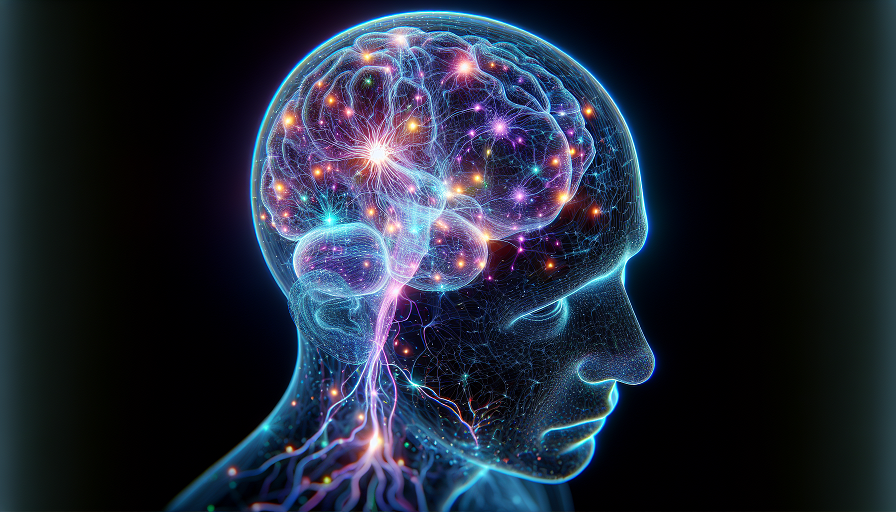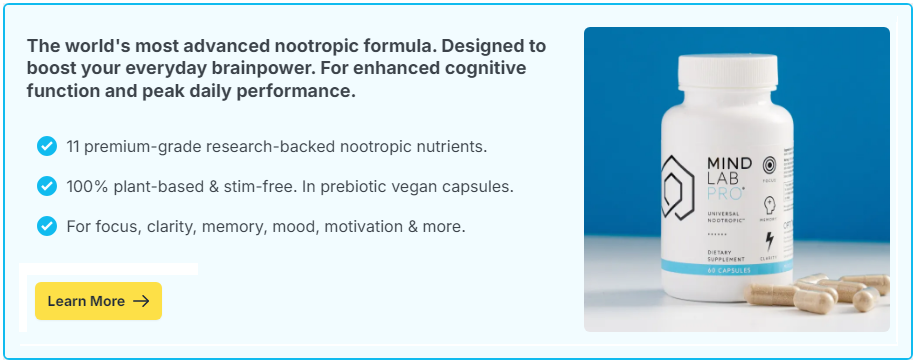
Most of us have heard about serotonin as the “feel-good” chemical that helps regulate our mood and well-being. But did you know that serotonin also plays a significant, yet often overlooked, role in fostering artistic and intellectual creativity? Here we enter the world of neuroscience to discover how this fascinating neurotransmitter can influence the way we think, feel, and create.
Contents
What is Serotonin?
Serotonin is a neurotransmitter, which is a type of chemical messenger that transmits signals in the brain. It’s primarily known for its impact on our mood, sleep, and appetite. However, serotonin is much more complex than just a mood lifter. It travels throughout the brain, affecting multiple functions, including those related to learning, memory, and even creativity.
Serotonin’s Influence on Mood and Behavior
While regulating mood might be serotonin’s most famous role, it’s important to note that it doesn’t operate alone. Serotonin influences other neurotransmitters, such as dopamine and norepinephrine, which together help maintain balance between enthusiasm, focus, and calmness. This balance is crucial for creativity; being anxious might drain your creativity, while too much relaxation can make it hard to concentrate and work on new ideas.
Connecting Serotonin to Creativity
Creativity is a complex trait that requires a balance of various mental processes. It’s influenced by how we process information, how freely ideas flow, and how we mix different thoughts in novel ways. Serotonin’s role in these processes can be subtle, but it’s integral to how creatively we think.
Openness to Experience
One of the key traits associated with creativity is “openness to experience.” People who score high in this trait tend to be imaginative, curious about the world, and willing to try new things. Serotonin levels can impact this trait by helping to manage how we see and interpret new experiences. Adequate serotonin levels can provide us with a stable base from which we can explore new avenues without being overwhelmed by stress or anxiety.
Facilitating Flexible Thinking
Another aspect of creativity is the ability to think flexibly — that is, to switch perspectives or approaches when faced with a problem. Serotonin plays a role here as well by helping the brain process information in parallel channels. This allows us to consider multiple possibilities simultaneously, paving the way for innovative and sometimes unconventional solutions that are characteristic of both artistic and intellectual creativity.
Art and the Creative Brain
Art is often seen as an expression of the inner self, a reflection of an individual’s unique ideas and experiences. So, how does serotonin influence artistic creativity specifically?
Emotional Expression and Stability
Art is deeply connected to emotion, as it often serves as an outlet for expressing feelings that cannot always be articulated in words. Serotonin equips us with the emotional stability needed to process and channel these feelings creatively. Lower serotonin levels can lead to mood swings or emotional instability, which may cloud our ability to channel emotions into our art effectively.
Enhancing Imagination
Serotonin also facilitates imagination, a core component of artistic creativity. Imagination requires the ability to form new ideas, images, or concepts without any immediate input from the senses. Serotonin aids this process by enabling us to visualize and simulate experiences mentally, allowing artists to bring non-tangible ideas to life through their work.
Intellectual Creativity and Problem-Solving
Intellectual creativity often manifests in tasks that require problem-solving, critical thinking, and innovation, such as in science, mathematics, and technology. This type of creativity requires a sharp mind and the ability to make connections between seemingly unrelated concepts.
Serotonin’s Role in Complex Problem Solving
In problem-solving, the ability to “think outside the box” is essential, and serotonin’s influence on mental flexibility is beneficial here. By enabling the brain to handle complex ideas and multiple perspectives, serotonin helps in forming unconventional solutions that are essential for intellectual breakthroughs.
Attention and Persistence
Moreover, serotonin assists in maintaining attention and persistence in the face of challenging problems. Solving complex issues often requires not only creativity but also the perseverance to explore different angles and endure potential failures. This tenacity is bolstered by serotonin, which helps stabilize mood during prolonged periods of focus.
Optimizing Serotonin for Better Creativity
Now that we understand how serotonin impacts creativity, how can we optimize our serotonin levels to enhance our creative capacities?
- Nutrition: Eating a balanced diet rich in foods like eggs, cheese, nuts, and salmon can help boost serotonin. These foods contain tryptophan, an amino acid that the body converts into serotonin.
- Exercise: Regular physical activity influences serotonin levels positively, leading to improved mood and cognitive function.
- Sunlight: Spending time in sunlight can enhance serotonin production. Aim for at least 15-30 minutes of sun exposure each day.
- Mindfulness Meditation: Practices such as mindfulness and meditation can increase serotonin levels by reducing stress and improving emotional regulation.
The Role of Brain Supplements in Boosting Serotonin and Creativity
For those looking to give their creative capabilities an extra edge, particularly by enhancing serotonin levels, brain supplements might offer some additional support. These supplements, often containing compounds like omega-3 fatty acids, B-vitamins, and herbal extracts such as St. John’s Wort, have been used to foster mental clarity, improve mood, and potentially boost creative thinking.
Omega-3 Fatty Acids
Omega-3 fatty acids, found abundantly in fish oil, are crucial for brain health. They play a role in building brain cell membranes and have anti-inflammatory effects, which may enhance neurotransmitter function, including that of serotonin. This can lead to improved mood regulation and cognitive flexibility, both of which are essential for creativity.
B-Vitamins
B-vitamins, particularly B6, B9 (folic acid), and B12, are vital for the production and regulation of neurotransmitters like serotonin. These vitamins help maintain healthy brain function, support mental energy, and reduce fatigue, thus building a solid foundation for creative thinking.
St. John’s Wort
St. John’s Wort is a well-known herbal remedy often used for its potential antidepressant effects. It is thought to work by increasing serotonin levels in the brain, which, as we’ve explored, can contribute to better mood stability and more effective creative processes, whether in art or intellectual endeavors.
Embracing the Role of Serotonin
Understanding serotonin’s influence on artistic and intellectual creativity offers us a more comprehensive picture of how our brains work and highlights the importance of maintaining a healthy balance of neurotransmitters. By nurturing our serotonin levels through diet, exercise, and lifestyle choices, we can tap into our full creative potential, leading to enriched artistic expression and innovative intellectual problem-solving.

